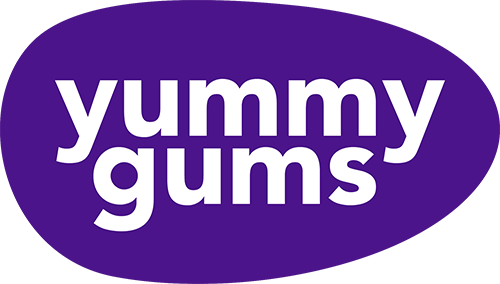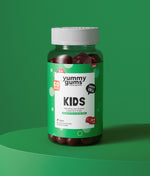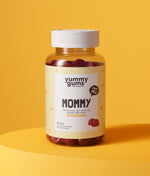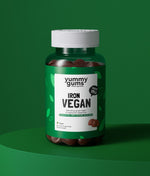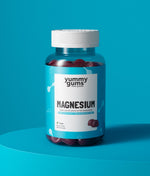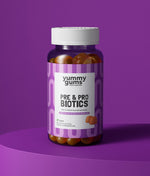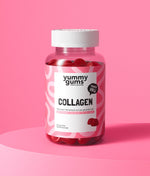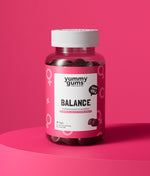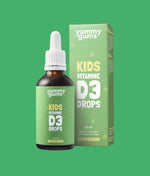Our vitamins highlighted
In our vitamin library you will learn more about our vitamins, what they do, how much you need daily and in which foods you can find them.
Vitamin A - Retinol
Good for vision
Why do I need vitamin A?
- Vitamin A is essential for the proper functioning of the eyes. It ensures that your eyes adapt to the amount of light in your environment. A vitamin deficiency can therefore lead to night blindness.
- Vitamin A has a positive effect on the defense and immune system and ensures improved resistance, making you less likely to become ill. It is therefore also called the anti-infection vitamin.
- Vitamin A plays a role in growth and is good for your gums and skin, as it ensures the production of new skin cells.
How much vitamin A do I need?
The Recommended Daily Allowance (RDA) vitamin A for an adult woman is 700 micrograms, for a man 900 micrograms. During pregnancy, the recommended amount is 800 micrograms per day. For children under 2 years of age the RDA is 300 micrograms, for children aged 2 to 5 years 350 micrograms and for children aged 6 to 9 years the RDA is 400 micrograms.
How do I get vitamin A through my diet?
- liver
- fish
- dairy
- butter
Vitamin A is mainly found in animal products such as meat and dairy. Your body can also make vitamin A itself, provided beta-carotene is present in your body. This is a precursor of vitamin A and can be found in fruits and vegetables. In addition, vitamin A is added in the Netherlands to margarine, low-fat margarine and baking and roasting products.
Vitamin B1 - Thiamine
No stress
Why do I need vitamin B1?
- Vitamin B1 ensures that our body can cope better with stress. The substance is important for the functioning of the neurotransmitter Gamma-aminobutyric acid (GABA), which has a calming effect on the central nervous system.
- Vitamin B1 is essential for the body's energy supply. It plays a role in various reactions in the body in which carbohydrates are converted into energy, and is therefore often found in sports nutrition.
- Vitamin B1 promotes proper functioning of the heart and nervous system.
How much vitamin B1 do I need?
The Recommended Daily Allowance (RDA) of vitamin B1 for adults is 1.1 milligrams. For children aged 1 to 3 years, the RDA is 0.3 milligrams, for children aged 4 to 8 years this is 0.5 mg and for children aged 9 to 13 years it is 0.8 milligrams. During pregnancy, the recommended amount is 1.4 milligrams per day.
How do I get vitamin B1 through my diet?
- pork
- grain products
Most foods have a low content of vitamin B1.
Vitamin B2 - Riboflavin
Energy vitamin
Why do I need vitamin B2?
- Vitamin B2 plays a role in the maintenance of the nervous system, digestion and energy metabolism. It is an important vitamin for energy supply.
- Vitamin B2 is important for healthy skin and good eyesight.
- Vitamin B2 contributes to the protection of the cells in the body against oxidative damage .
How much vitamin B2 do I need?
The Recommended Daily Allowance (RDA) of vitamin B2 for adults is set at 1.6 milligrams. For children up to 1 year old, the RDA is 0.4 milligrams, for children from 1 to 3 years old 0.5 milligrams, for children from 4 to 8 years old 0.7 milligrams, for children from 9 to 13 years old. 1.0 milligrams and 1.5 milligrams for children aged 14 to 17 years.
How do I get vitamin B2 through my diet?
- dairy
- meats
- vegetables
- fruit
- grain products
Vitamin B3 - Niacin
For healthy veins
Why do I need niacin?
- Niacin plays an important role in the energy supply of cells.
- Niacin helps in the production of fatty acids. Fatty acids have, among other things, a positive influence on the heart and blood vessels.
- Niacin is important for proper functioning of the nervous system.
- Niacin ensures healthy skin. A deficiency of niacin can lead to pellagra, a skin condition in which the skin feels rough.
How Much Niacin Do I Need?
The Recommended Daily Allowance (RDA) of niacin for adult women is 13 milligrams, for men this is 17 milligrams. For children up to 3 years old, the RDA is 4 milligrams, 7 milligrams per day is recommended for children aged 4 to 8 years and 11 milligrams per day for children aged 9 to 13 years.
How do I get niacin through my diet?
- meat
- poultry, such as chicken and turkey
- fish, especially tuna
- nuts and seeds
- peanuts
- grain products
Vitamin B5 - Pantothenic acid
All-rounder
Why do I need pantothenic acid?
- Pantothenic acid supports the breakdown of proteins, fats and carbohydrates.
- Pantothenic acid contributes to the supply of energy.
- Pantothenic acid is important in the formation of a number of hormones and ensures a properly functioning nervous system.
- A long-term and severe deficiency of pantothenic acid can cause a burning or painful feeling in the feet.
How much pantothenic acid do I need?
There is not yet sufficient scientific evidence to establish a Recommended Daily Allowance for pantothenic acid. The Health Council has, however, established an Adequate Intake. The daily Adequate Intake of pantothenic acid for adults is set at 5 milligrams. Don't think of this amount as a target value, but rather as a direction indicating how much is needed.
How do I get pantothenic acid through my diet?
- meat, especially chicken and beef
- Eggs
- legumes
- dairy products
- vegetables and fruit
- whole grain products
Vitamin B6 - Pyridoxine
Amino acid engine
Why do I need vitamin B6?
- Vitamin B6 mainly ensures the breakdown and construction of amino acids, the building blocks of proteins.
- Vitamin B6 is important for resistance, digestion and metabolism.
- Vitamin B6 is involved in the production of red blood cells and is necessary for the proper functioning of the immune system.
- Vitamin B6 supports the nervous system and energy supply.
How much vitamin B6 do I need?
The Recommended Daily Allowance (RDA) of vitamin B6 for adults is set at 1.5 milligrams. For children aged 1 to 3 years, the RDA is 0.4 milligrams, for children aged 4 to 8 years 0.7 milligrams per day is recommended and for children aged 9 to 13 years this is 1.1 milligrams.
How do I get vitamin B6 through my diet?
- meat, especially pork fillet
- Eggs
- (coal)fish
- walnuts
- whole grain products
- potatoes
- vegetables
Vegetables, milk and cheese contain vitamin B6 in smaller amounts.
Vitamin B8 - Biotin
Beauty secret
Why do I need vitamin biotin?
- Biotin, like all other B vitamins, helps release energy from food.
- Furthermore, biotin is important for a properly functioning nervous system.
- Biotin plays an important role in the construction and breakdown of carbohydrates and proteins and the production of fatty acids.
- In addition, it helps Biotin in keeping the skin healthy and is best known for its hair growth-promoting properties. It keeps your hair strong, healthy and shiny.
How much biotin do I need?
There is not yet enough scientific evidence to determine a Recommended Daily Allowance for biotin. The Health Council has established an Adequate Intake. The Adequate Intake for biotin has been set at 40 micrograms per day for adults. Do not consider this amount as a target value, but as a direction indicating how much is needed.
How do I get biotin through my diet?
- Eggs
- liver products
- milk
- nuts and peanuts
- soy products
Vitamin B11 - Folic acid
Pregnancy essential
Why do I need folic acid?
- Folic acid is necessary for a properly functioning nervous system and immune system.
- Folic acid contributes to cell division during growth and other processes.
- Folic acid is important for the production of red and white blood cells and hereditary material (DNA).
- Folic acid has a positive effect on mood, memory, concentration and resistance.
- Folic acid lowers the homocysteine level in the blood. High homocysteine levels are associated with a greater risk of cardiovascular disease.
Folic acid & pregnancy
Folic acid plays an important role in the early development of the unborn child. That is why it is strongly recommended to take a supplement with folic acid when you are trying to become pregnant. Folic acid contributes to the formation of the fetus's nervous system, which starts to develop 24 hours after fertilization. Taking folic acid by the mother reduces the risk of birth defects such as spina bifida or cleft lip in the child. Because it is difficult to get the increased RDA from your diet, taking a folic acid supplement is recommended for women who want to become pregnant, are pregnant or are breastfeeding.How much folic acid do I need?
The recommended daily allowance (RDA) of folic acid for adults is set at 300 micrograms. As described above, folic acid plays an important role during pregnancy. For women trying to become pregnant, pregnant women and lactating women, a daily intake of 400 micrograms is therefore recommended. For children up to 3 years old, the RDA is 85 micrograms, for children aged 4 to 8 years 150 micrograms and for children aged 9 to 13 years 225 micrograms is the guideline. Because your body cannot make folic acid itself, it is important to get enough folic acid through food or supplements.How do I get folic acid through my diet?
- vegetables, especially beets and broccoli
- oranges
- lentils
- kidney beans
- fruit
- whole-wheat products
Vitamin B12 - Cobalamin
Dead serious
Why do I need vitamin B12?
- Vitamin B12 is essential for the production of healthy red blood cells. Red blood cells transport oxygen through your blood. A long-term deficiency of vitamin B12 can lead to anemia.
- Vitamin B12 is necessary for the proper functioning of the nervous system, for good resistance and contributes to energy supply.
How much vitamin B12 do I need?
The Recommended Daily Allowance (RDA) for vitamin B12 for adults it is set at 2.8 micrograms. For children aged 4 to 8 years, the RDA is 1.3 micrograms, for children aged 9 to 13 years a daily intake of 2 micrograms is recommended. Because the active variant of vitamin B12 (the variant that can be absorbed by the body) only occurs in animal products, it is important for vegans to take a B12 supplement with a significant dose compared to the RDA. People who eat a (predominantly) vegetarian diet are also recommended to keep a close eye on their vitamin B12 intake.
How do I get vitamin B12 through my diet?
- dairy products
- Eggs
- fish and meat
Vitamin C - Ascorbic acid
Rock-solid resistance
Why do I need vitamin C?
- Vitamin C is best known for maintaining resistance.
- Vitamin C functions as an antioxidant. This means that body cells are protected against damage caused by free radicals. Free radicals are aggressive substances that in some cases can cause damage to cells and tissues. They play a role in aging processes.
- Vitamin C is necessary for the formation of connective tissue.
- Vitamin C promotes the absorption of iron.
- Vitamin C contributes to energy supply.
- Vitamin C supports the functioning of the nervous system.
- Vitamin C ensures healthy bones, teeth, skin and blood vessels.
How much vitamin C do I need?
The Recommended Daily Allowance (RDA) of vitamin C for adults is 75 milligrams. For children aged 6 to 9 years, 40 milligrams is recommended, for children aged 9 to 13 years 50 mg and for children over 13 years old the same RDA applies as for adults: 75 milligrams.
How do I get vitamin C through my diet?
- fruits, especially citrus fruits and berries
- vegetables, especially cabbages
- potatoes
Vitamin D - Colecalciferol
Sunshine in the house
Why do I need vitamin D?
- Your body needs vitamin D for strong bones and teeth. Vitamin D ensures that calcium and phosphorus can be absorbed and stored in the bones and teeth.
- In addition, vitamin D is needed to limit osteoporosis as much as possible. This reduces the risk of osteoporosis (bone decalcification) later in life.
- Vitamin D is important for the proper functioning of the immune system.
- Vitamin D plays an important role in maintaining muscle functions.
How much vitamin D do I need?
In principle, the same guideline applies to everyone regarding vitamin D, namely 10 micrograms per day. There are certain groups that can absorb less vitamin D. These groups are recommended to consume an extra 20 micrograms per day via a supplement. These groups include the elderly (70 years and older), because their skin is less able to form vitamin D from sunlight. People with a tan or dark skin color, people who do not often go outside, people who wear a veil and children up to 3 years old are also at increased risk of vitamin D deficiency. For pregnant women, an additional dose of 20 micrograms via a supplement is also recommended.
How do I get vitamin D through my diet?
- animal products
- fatty fish (eel, salmon, mackerel)
- eggs
- butter
- margarine, low-fat margarine and baking and roasting products
Vitamin D is naturally present in only a number of products. The few foods that contain vitamin D usually contain it in small amounts. For most people, sunlight is the main source of vitamin D. UV radiation causes a chemical reaction: as soon as the skin comes into contact with sunlight, the skin starts producing vitamin D with the help of a prohormone.
About two-thirds of the amount of vitamin D you need daily is produced in this way. You get the rest from food. Vitamin D is found exclusively in foods of animal origin. In the Netherlands, vitamin D is added as standard to margarine, low-fat margarine and baking and roasting products. Vitamin D is also added to artificial infant formula in accordance with the applicable EU directive.
Vitamin E - Alpha-tocopherol
Super antioxidant
Why do I need vitamin E?
- Vitamin E is an antioxidant. It protects cells, cell walls, bloodstream and tissue against cell damage caused by free radicals.
- Vitamin E is important for cell metabolism and the production of red blood cells.
- Vitamin E supports resistance.
- Vitamin E helps maintain tissues.
How much vitamin E do I need?
There is not yet sufficient scientific evidence to determine an RDA for vitamin E. The Health Council has, however, established an Adequate Intake. The daily Adequate Intake for vitamin E has been set at 13 milligrams for adult men and 11 milligrams for adult women. Do not consider this amount as a target value, but as a direction indicating how much is needed.
How do I get vitamin E through my diet?
- vegetable oils
- cereals
- nuts and seeds
- low-fat margarine/margarine
- vegetables and fruit
Vitamin K - Phyloquinone
Blood-curdlingly exciting
Why do I need vitamin K?
- Vitamin K is necessary for proper blood clotting.
- Vitamin K plays an important role in bone building and bone metabolism. It regulates calcium by taking it from our blood and storing it in our bones.
How much vitamin K do I need?
The Recommended Daily Allowance (RDA) of vitamin K for adult women is set at 90 micrograms, for men it is 120 micrograms. Higher advice applies to newborn babies who are breastfed. The Health Council recommends administering 150 micrograms in drop form daily to a newborn. Babies cannot receive this vitamin from their mother during pregnancy, and cannot produce it sufficiently themselves because their intestinal flora is still developing.
How do I get vitamin K through my diet?
- green (leaf) vegetables, such as kale, spinach and broccoli
- vegetable oils
- dairy, for example cottage cheese
- fruit
- Eggs
- meat
Chrome
Insulin helper
Why do I need chrome?
- Chromium is essential for the body's processing of insulin and maintaining blood sugar levels.
- Chromium plays a role in carbohydrate and fat metabolism.
How much chrome do I need?
The Health Council does not make any recommendations for chromium. In the United States, 25 to 35 micrograms per day is recommended for adult women and men.
How do I get chromium through my diet?
- vegetable
- fruit
- whole grain products, such as bread
- meat
- dairy products
Iodine
Your thyroid's BFF
Why do I need iodine?
- Iodine is important for the production of thyroid hormones. These hormones are necessary for proper growth, metabolism and the development of the nervous system.
- Iodine supports energy supply.
How much iodine do I need?
The Health Council has not drawn up recommended amounts for iodine. In 2012, guidelines for an RDA were established in Scandinavia, which are now also used in the Netherlands: the RDA for iodine from the age of 9 is 150 micrograms. For children aged 6 to 9 years, the RDA is 120 micrograms. Pregnant and breastfeeding women are recommended a higher dose, namely 175 micrograms and 200 micrograms respectively.
How do I get iodine through my diet?
- bread, baked with baker's salt
- sea fish
- eggs
- dairy products
In the Netherlands, the law stipulates that bakers (and supermarkets) must use salt to which iodine has been added for their bread. For many Dutch people, bread is the largest source of iodine in their diet. If you eat little bread or if you often eat organic bread or home-made bread without baker's salt, pay attention to your iodine intake.
Selenium
Hair enhancer
Why do I need selenium?
- Selenium, also called selenium, is an antioxidant. It protects red blood cells and cells against harmful substances.
- Selenium provides maintaining strong hair . It supports the body in processing proteins, the main component of hair. Several studies have shown that a selenium deficiency can cause hair loss.
- Selenium makes heavy metals, which can end up in food due to contamination, less harmful.
- Selenium ensures proper functioning of the thyroid gland.
How much selenium do I need?
- The Health Council has set a daily intake guideline for selenium. For adults this is 70 micrograms, for children there are lower recommendations ranging between 15 micrograms and 60 micrograms, depending on age.
How do I get selenium through my diet?
- meat and offal, especially liver and kidney
- fish and shellfish
- nuts, especially Brazil nuts
- whole grain products
- dairy products
Silicon
Hair, skin, nails
Why do I need silicon?
- Silicon strengthens your bones and connective tissue.
- Silicon contributes to your liver function, nerve function and cell renewal.
- Silicon supports the immune system.
- Silicon protects the proteins in your skin. These provide elasticity.
- Silicon is essential for the production of keratin and collagen, the two main components of hair.
- Silicon is necessary to maintain healthy nails. Nails, like hair, consist largely of keratin.
- Keratin provides resilience and strength to the nails.
How much silicon do I need?
No Recommended Daily Allowance for silicon has (yet) been established.
How do I get silicon through my diet?
- (dried) dates
- nettle (tea)
- oatmeal
- raisins
- beans
Zinc
Immune system booster
Why do I need zinc?
- Zinc is a mineral that works with a large number of enzymes in the body that are involved in metabolism.
- Zinc ensures proper functioning of the defense and immune system.
- Zinc contributes to the proper functioning of the retina and helps to see clearly in the dark.
- Zinc is good for your nails and an important building block for your hair.
- Zinc is good for your concentration and memory.
How much zinc do I need?
The Recommended Daily Allowance (RDA) for zinc for adult men is set at 9 milligrams, and 7 milligrams for women. 7 milligrams are recommended for children aged 6 to 9 years. For boys aged 9 to 13 years, the RDA is 11 milligrams, for boys aged 14 to 17 years, 12 milligrams applies. For girls aged 9 to 13 years, an amount of 8 milligrams applies, for girls aged 14 to 17 years, 9 milligrams is recommended.
How do I get zinc through my diet?
- meat
- fish, especially herring
- shellfish
- bread
- legumes
- rice
